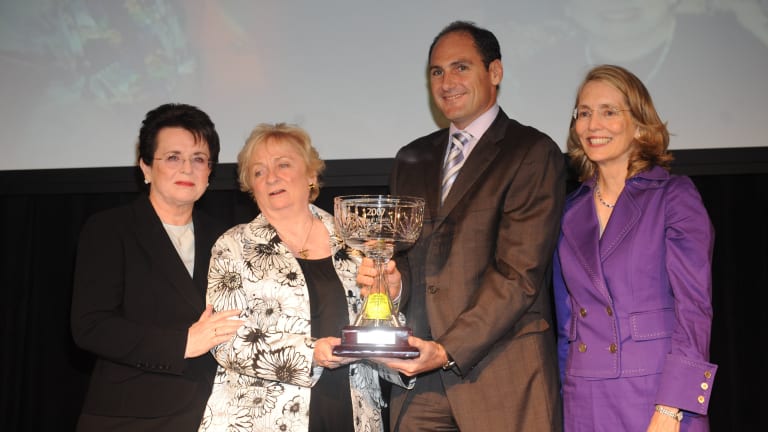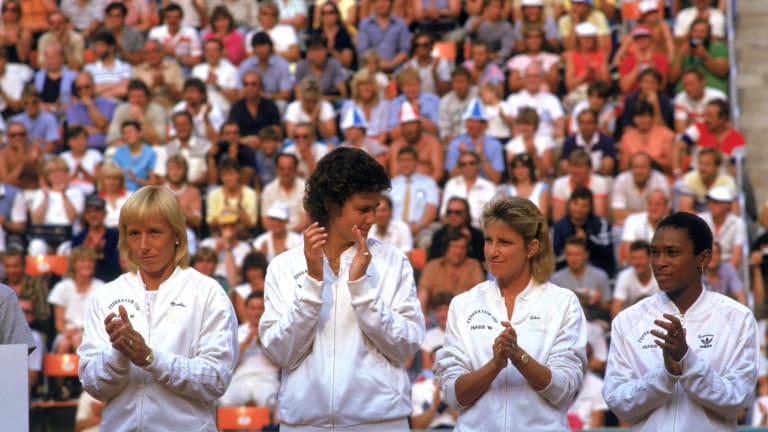Editor's Note: Jane Brown Grimes, a transformative tennis industry leader who held roles as President and CEO of the International Tennis Hall of Fame, Managing Director of the Women’s Professional Tennis Council (precursor to today’s WTA), and Chairman of the Board, President, and CEO of the United States Tennis Association, died at home in New York City on November 2. Brown Grimes, a lifelong New Yorker, was 80 years old.
Where Are They Now?
Jane Brown Grimes: The Most Scholarly Hall of Famer
By Jun 17, 2021Where Are They Now?
The Three Gorans: Ivanisevic to be enshrined in Tennis Hall of Fame
By Jul 14, 2021Where Are They Now?
At 74, Life is Busy and Complete for Stan Smith
By Jun 21, 2021Where Are They Now?
The Craftsman: Butch Buchholz and the rippling effects of his Miami Open vision
By Jun 16, 2021Where Are They Now?
The Second Act: Gigi Fernandez's fascinating post-tour career
By Jun 15, 2021Social
Jessica Pegula has an answer to Zheng Qinwen's 'hilarious' question on "Player's Box" podcast
By Feb 22, 2026ATP Delray Beach, USA
"He's a good looking guy": Sebastian Korda plays off Delray Beach emcee's slip-up after Cobolli win
By Feb 22, 2026Tennis.com Interview
Michigan State’s ace Matthew Forbes stokes "a fire that was missing" in college tennis
By Feb 21, 2026Stat of the Day
At just 22, Carlos Alcaraz has already won titles in 14 different countries after victory in Doha, Qatar
By Feb 21, 2026WTA Dubai, UAE
"A great birthday present": Jessica Pegula dismisses Elina Svitolina in Dubai for 10th career title
By Feb 21, 2026Jane Brown Grimes: The Most Scholarly Hall of Famer
Brown has channeled her years in tennis into a fruitful academic path, and is currently in the midst of writing a PhD thesis on the history of women's game.
Published Jun 17, 2021
Advertising

GettyImages-82539130
Advertising
Advertising

Brown Grimes' Masters thesis centers on Martina Navratilova's return to communist Czechoslovakia in 1986 (Getty Images).
© Getty Images
Advertising
Advertising
![Brown Grimes' PhD thesis ends at the 2007 Wimbledon Championships, where "Venus Williams [was instrumental] in getting equal prize money for the women so all of the Grand Slam tournaments finally had parity" (Getty Images).](https://images.tennis.com/image/private/t_16-9_768/f_auto/tenniscom-prd/c3smuxk9dyal9rdekgzb.jpg)
Brown Grimes' PhD thesis ends at the 2007 Wimbledon Championships, where "Venus Williams [was instrumental] in getting equal prize money for the women so all of the Grand Slam tournaments finally had parity" (Getty Images).
© 2007 Getty Images